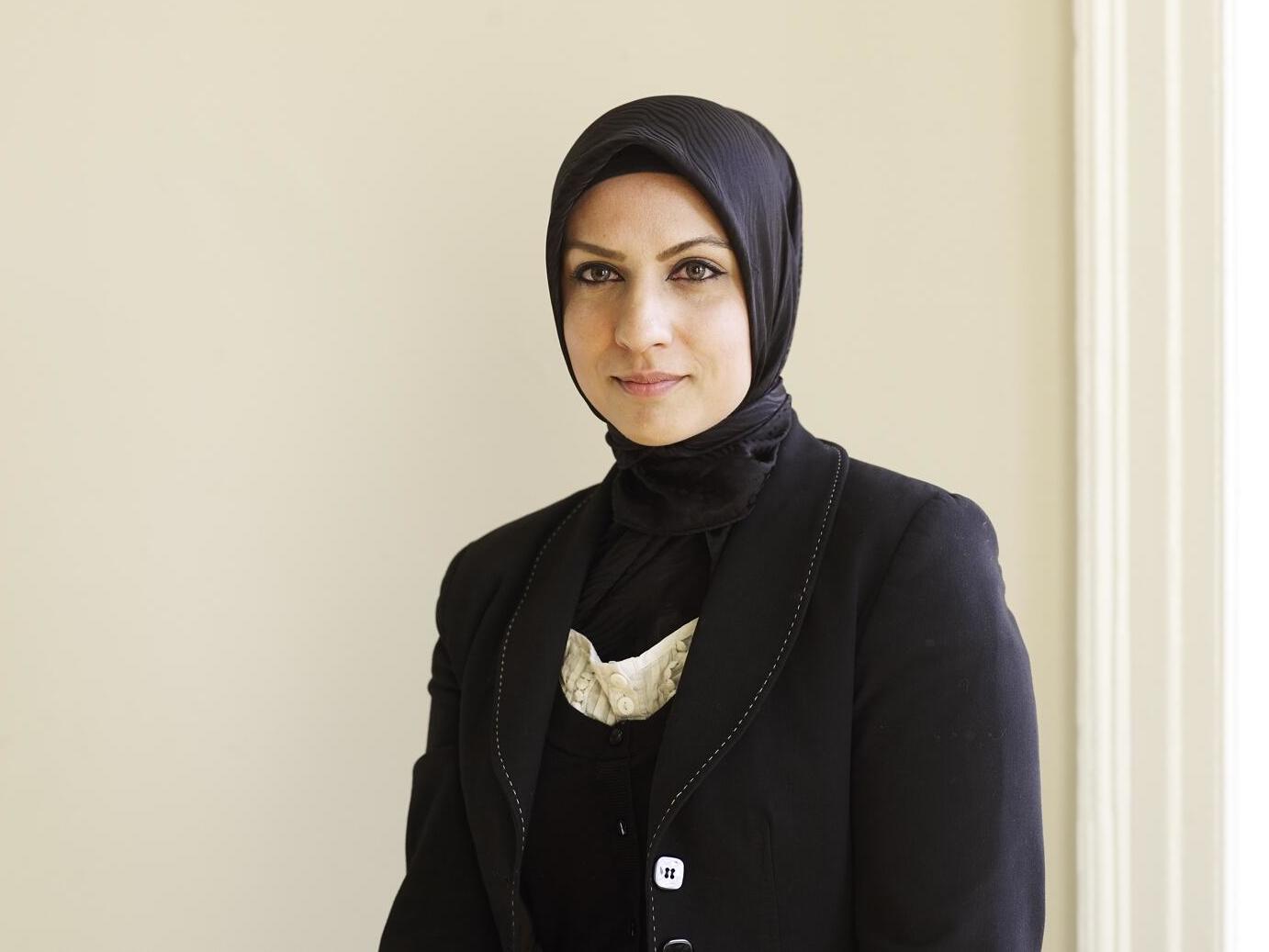Barrister appointed as one of first hijab-wearing judges in UK
‘There is still this prejudicial view that professionals at the top end don’t look like me’

A Muslim woman has become the first hijab-wearing deputy district judge in the UK.
Raffia Arshad, 40, was appointed a deputy district judge on the Midlands circuit last week after a 17-year career in law.
“It’s definitely bigger than me, I know this is not about me. It’s important for all women, not just Muslim women, but it is particularly important for Muslim women,” she told Metro.
Speaking to the outlet she said that as a young girl she feared that her working-class upbringing and ethnic minority background would alienate her from the profession.
The newly appointed judge said that she wishes to use her platform “to make sure the sound of diversity is heard loud and clear”.
Ms Arshad described how the positive response she has received is the most rewarding part of the appointment.
“I’ve had so many emails from people, men and women. It’s the ones from women that stand out, saying that they wear a hijab and they thought they wouldn’t even be able to become a barrister, let alone a judge,” she told the newspaper.
After training in London Ms Arshad was called in 2002 and joined St Mary’s Family Law Chambers in 2004.
Throughout her career, she has practised in a variety of fields including private law children, forced marriage, female genital mutilation, and cases with Islamic law issues.
However, she said that despite her wealth of experience, she still faces prejudice and discrimination. She described how she sometimes gets mistaken for a client or interpreter while in the courtroom, most recently by an usher.
“I have nothing against the usher who said that, but it reflects that as a society, even for somebody who works in the courts, there is still this prejudicial view that professionals at the top end don’t look like me,” she said.
“I think one of the things that holds women back is Imposter Syndrome. There are many times I’ve been in a courtroom and I suddenly think: ‘Am I good enough?’”
Ms Arshad described a defining moment in her career in 2001 when a family member told her not to wear her hijab to an interview for a scholarship at the Inns of Court School of Law, saying it would severely affect her chances.
“I decided that I was going to wear my headscarf because for me it’s so important to accept the person for who they are and if I had to become a different person to pursue my profession, it’s not something I wanted,” she said.
She went on to have a successful career as a barrister, becoming the author of a leading text in Islamic Family Law.
The Joint Heads of St Mary’s Family Law Chambers praised Ms Arshad’s efforts to further diversity within the profession and inspire minorities.
“Raffia has led the way for Muslim women to succeed in the law and at the Bar and has worked tirelessly to promote equality and diversity in the profession,” Vickie Hodges and Judy Claxton said.
“It is an appointment richly deserved and entirely on merit and all at St Mary’s are proud of her and wish her every success.”
Ms Arshad emphasised that while the judicial office is doing its utmost to promote inclusion, she carries her own sense of responsibility to champion diversity in the profession.
‘Now it’s up to me to be that voice for them, to make sure the sound of diversity is heard loud and clear and that it gets to the appropriate places,” she said.
Join our commenting forum
Join thought-provoking conversations, follow other Independent readers and see their replies
0Comments